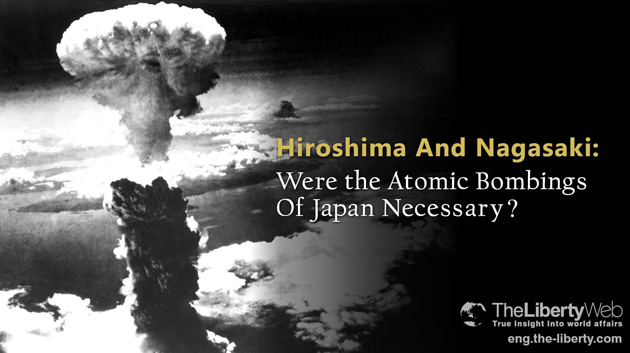Hiroshima And Nagasaki: Were the Atomic Bombings Of Japan Necessary?
The controversy over the dropping of the atomic bombs on Hiroshima and Nagasaki continues and will continue, imbuing current and future generations with the task of disputing this catastrophic decision. Should the U.S. have dropped the bombs killing more than 200,000 combatant and non-combatant citizens of Japan in the most horrific manner, not only resulting in death, but years and generations of suffering and fear to the survivors and the unborn children of this atomic cataclysm? Was the act justifiable? Was it a grand experiment by the United States to test Uranium and Plutonium bombs? Was it an act of racism perpetrated on a yellow race? Would the Bombs have been dropped on Germany had they not surrendered? Was there any legitimate military justification for the act?
Those who believe the atomic bombing was necessary claim it ended the war and prevented massive casualties on both sides. That view is still held by many. Yet facts dispute its efficacy and validity. Was it the first act of the Cold War, meant to demonstrate to Russia the might of the U.S.?
Was it ethical? Was it a war crime? Was it state terrorism as some claim? Scholars and courts continue to argue that.
Leo Szilard, who played a major role in the Manhattan Project argued, “Let me say only this much to the moral issue involved: Suppose Germany had developed two bombs before we had any bombs. And suppose Germany had dropped one bomb, say, on Rochester and the other on Buffalo, and then having run out of bombs, she would have lost the war. Can anyone doubt that we would then have defined the dropping of atomic bombs on cities as a war crime, and that we would have sentenced the Germans who were guilty of this crime to death at Nuremberg and hanged them?” (“Leo Szilard, Interview: President Truman Did Not Understand.” U.S. News and World Report. 15 August 1960, pp. 68-71″)
On August 11, 1945, the Japanese government filed an official protest over the atomic bombing to the U.S. State Department through the Swiss Legation in Tokyo, suppressed for some 25 years, stating,
“Combative and noncombatant men and women, old and young, are massacred without discrimination by the atmospheric pressure of the explosion, as well as by the radiating heat which result therefrom. Consequently there is involved a bomb having the most cruel effects humanity has ever known… The bombs in question, used by the Americans, by their cruelty and by their terrorizing effects, surpass by far gas or any other arm, the use of which is prohibited. Japanese protests against U.S. desecration of international principles of war paired the use of atomic bomb with the earlier firebombing, which massacred old people, women and children, destroying and burning down Shinto and Buddhist temples, schools, hospitals, living quarters, etc… They now use this new bomb, having an uncontrollable and cruel effect much greater than any other arms or projectiles ever used to date. This constitutes a new crime against humanity and civilization.”
Dwight D. Eisenhower in his memoir, “The White House Years” comments, “In 1945 Secretary of War Stimson, visiting my headquarters in Germany, informed me that our government was preparing to drop an atomic bomb on Japan… so I voiced to him my grave misgivings, first on the basis of my belief that Japan was already defeated and that dropping the bomb was completely unnecessary, and secondly because I thought that our country should avoid shocking world opinion by the use of a weapon whose employment was, I thought, no longer mandatory as a measure to save American lives.”
These words, while compelling, do not humanize the suffering, disbelief, grief and destruction visited on the Japanese people, who awoke on these golden, sun lit days, never to know the innocence of faith, trust or lack of terror, that the clouds and flames visited upon them, changing their lives forever.
Should the U.S. offer a formal apology? See the video to form your own opinions. And never forget.



















